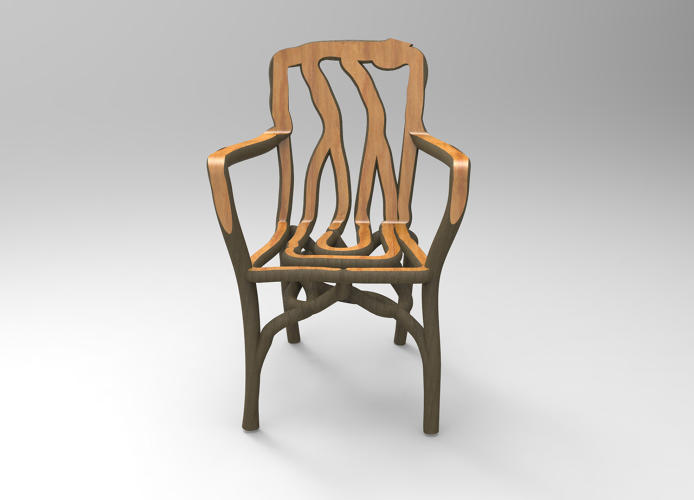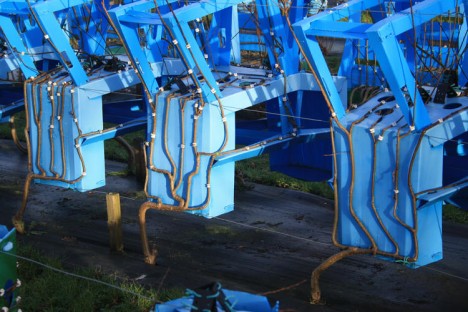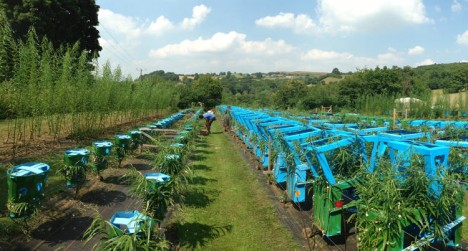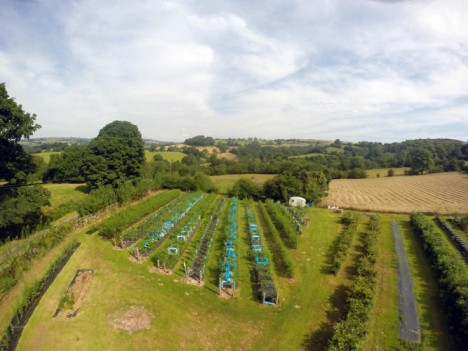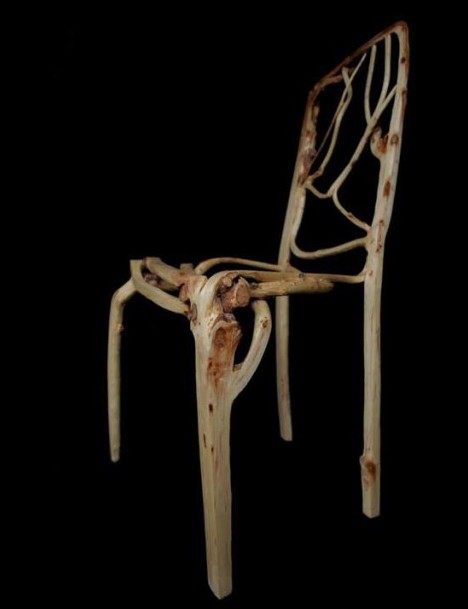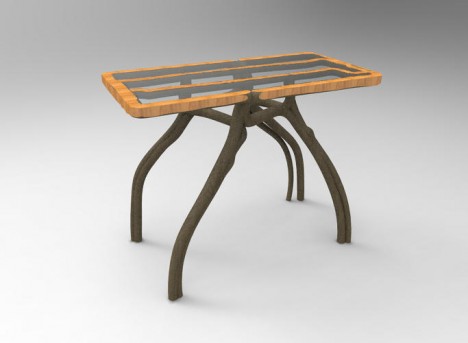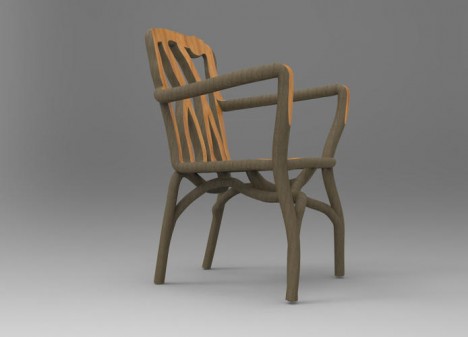Taking arborsculpture to new levels of efficiency and functionality, this furniture designer creates plastic molds in which his designs are grown without needing to be sawed and shaped after the fact, reducing waste and streamlining the production process. Light, soil and air are the equivalent of filament in this organic 3D printing analog, and even more directly: the molds can be 3D-printed as well.
While requiring careful planning and additional work upfront, taking young willow, oak, ash and sycamore trees and turning them as they grow into chairs, tables and lamps both shortens the construction cycle and eliminates the need to reconnect disparate pieces.
Founder of Full Grown in Derbyshire, England, Gavin Munro aims to challenge “the way we create products as well as how we see the items with which we surround ourselves, the Grown Furniture has an immediate tactile, visceral and organic appeal.”
Gavin thinks of this process as a kind of “organic 3D printing that uses air, soil and sunshine as its source materials. After it’s grown into the shape we want, we continue to care for and nurture the tree, while it thickens and matures, before harvesting it in the Winter and then letting it season and dry. It’s then a matter of planing and finishing to show off the wood and grain inside.”
The notion of shaping trees as they grow on a massive scale is not a novel one – similar techniques have long been employed in vineyards to maximize growth and optimize grape picking. Even the idea of growing fully-formed furniture is not new – artists and designers have long shaped living trees to create objects of use. As far back as Ancient Greece, chairs were ‘built’ by digging out chair-shaped holes and allowing them to fill with root structures before being ‘harvested’ from the ground.
Still, the scale and ambitions here are, however, much bigger – creating full crops of grown furniture, turning a one-off idea into a potentially mass-produced (but always unique) product line.
Each furniture piece takes a few years to grow and maintaining this ‘forest of furniture’ is nothing if not challenging: “I’m only making 50 or so pieces per year but for every 100 trees you grow there are a 1,000 branches you need to care for, and 10,000 shoots you have to prune at the right time.”
Still, the results are worth the effort in the mind of this maker: “They’re still growing now, but when harvested and finished we expect them to be not just fully functional and ergonomic but grown, grafted and fastened into one solid piece, [meaning] no joints that only ever loosen over time. These could last for centuries. We hope and trust that this will eventually become an improvement on current methods.”
